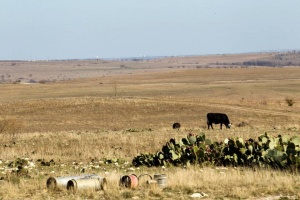FORT WORTH
The City Council is being asked by developers of two large master-planned communities to issue debt to help pay for water and sewer mains, but the debt would be repaid by special assessments on the tax bills of the residents and businesses that will own property there.
This is the first time Fort Worth is considering using the so-called capital public improvement districts, which essentially have the end users paying for the growth and not the city.
Assistant City Manager Jay Chapa said the capital PIDs are widely used in Texas, particularly in Austin. Under them, no tax revenues are pledged against the debt; rather the debt is paid by the assessment and once the debt is paid in full, the assessment is removed, he said.
“Even though we haven’t used it to date, we believe it’s a tool that could be utilized to further our goals as a city for development, especially if we want to have large development occur and that development occur at a quicker pace,” Chapa said.
The projects are the Walsh Ranch in far west Fort Worth, a development of the Walsh family straddling Interstates 20 and 30, and Rock Creek Ranch in far southwest Fort Worth along the Chisholm Trail Parkway, a project of the Walton Group of Cos. Tarleton State University plans its new Fort Worth campus in Rock Creek.
Both developments are beginning home construction. When completed, each has the potential to become massive growth areas for the city. Both have asked that the PIDs be approved by Oct. 1.
The Walsh Ranch is looking at a $30 million in bonds for 1,700 acres north of the interstate called Quail Valley. Walsh proposes an assessment of 18 cents per $100 of assessed property value. It would take 30 years to pay off the debt. The city agreed to creating the PID on the Walsh Ranch when it reached an economic development agreement on the project in 2003.
Walton is looking at $15 million in bonds for 1,500 acres, assessing between 4 and 10 cents per $100 of valuation. The debt would be repaid in 30 years.
“That site and that development is on a pace much quicker than the overall development of that area,” Chapa said. “The city has been in support of Tarleton State moving forward.”
Councilman Jungus Jordan, whose district includes the Walton development, said the PIDs could become a useful tool for development.
“This is in keeping with the philosophy of growth paying for growth,” Jordan said. “This is self-imposed by the landowner; it’s not a tax the city is implementing. It is a tool that through process effectively promotes a higher-quality development.”
Under a proposed policy, the city would charge a $35,000 application fee and the developer would escrow $150,000 to be used to pay for costs of issuing the debt. It would only be allowed for developments larger than 1,500 acres, used for infrastructure work only, such as water and sewer mains and arterial streets, and an assessment can go no higher than 27 cents per $100 of assessed value.
This article originally appeared on Star-Telegram.



